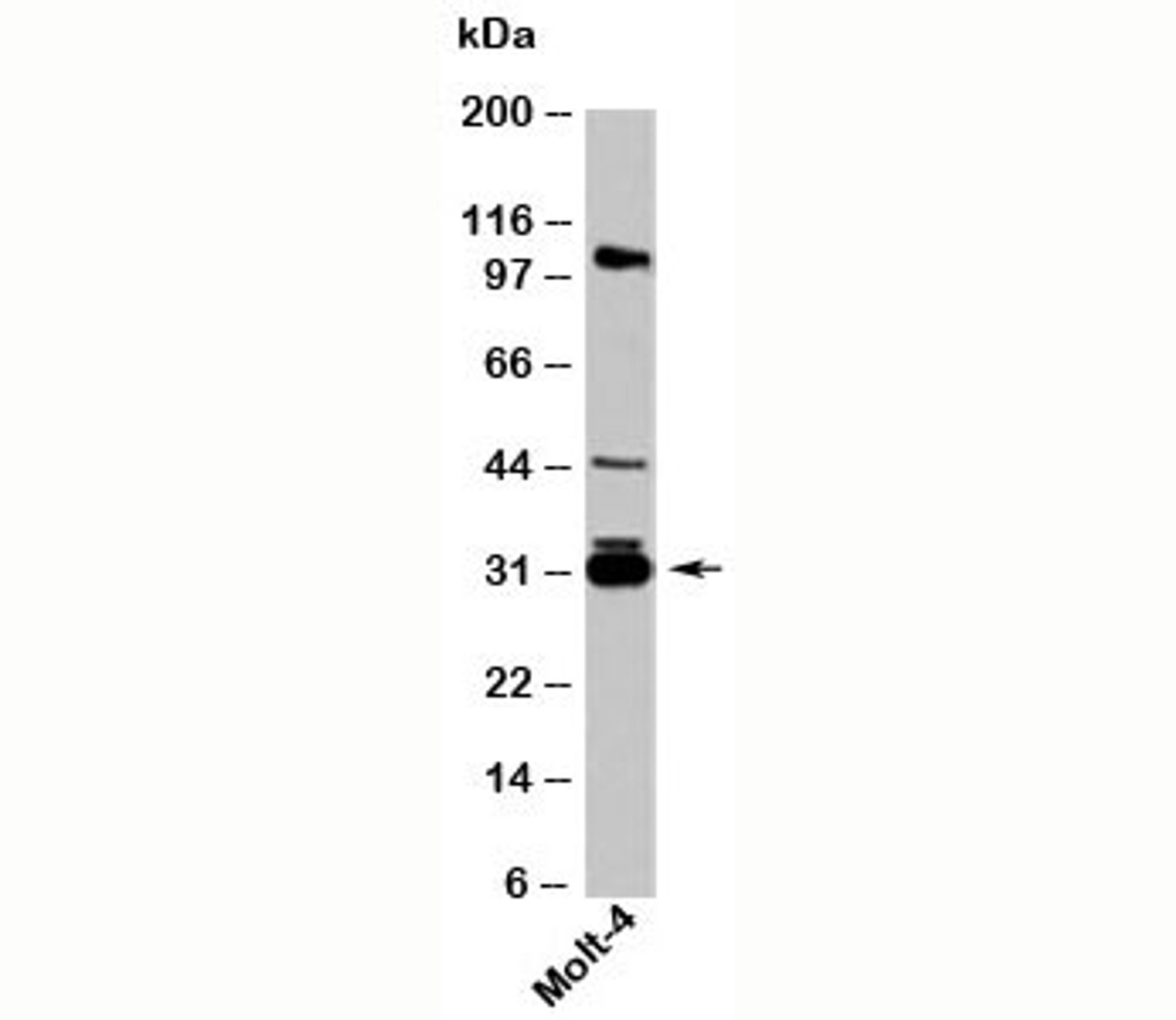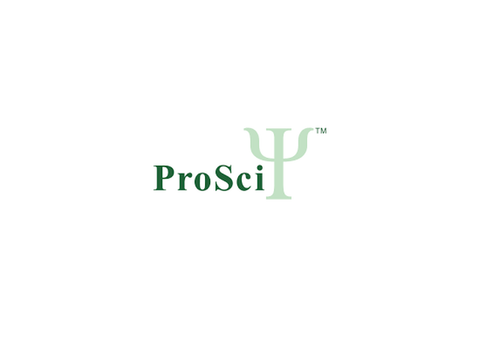Product Description
14-3-3 sigma Antibody | 33-020 | ProSci
Host: Rabbit
Reactivity: Human, Mouse, Rat
Homology: N/A
Immunogen: A recombinant protein fragment from the internal region of 14-3-3 sigma was used as the immunogen for this antibody. The amino acid sequence is common to the ~30kDa and ~20kDa isoforms.
Research Area: Neuroscience, Signal Transduction
Tested Application: WB
Application: Western blot: 1-3 ug/ml
Provided assay concentrations are suggestions only, 14-3-3 sigma antibody titration may be required for optimal results.
Specificiy: N/A
Positive Control 1: N/A
Positive Control 2: N/A
Positive Control 3: N/A
Positive Control 4: N/A
Positive Control 5: N/A
Positive Control 6: N/A
Molecular Weight: N/A
Validation: N/A
Isoform: N/A
Purification: Protein A affinity chromatography
Clonality: Polyclonal
Clone: N/A
Isotype: IgG
Conjugate: Unconjugated
Physical State: Liquid
Buffer: PBS with 0.1 mg/ml BSA and 0.05% sodium azide
Concentration: 0.5 mg/mL
Storage Condition: Aliquot and Store at -20˚C. Avoid freez-thaw cycles.
Alternate Name: 14-3-3 protein sigma, Epithelial cell marker protein 1, Stratifin, SFN, HME1
User Note: Optimal dilutions for each application to be determined by the researcher
BACKGROUND: 14-3-3 proteins are regulators of a diverse group of signaling proteins, including kinases, phosphatases, and transmembrane receptors, and have roles in a wide range of physiological processes including transcription, intracellular signaling, cell cycle control and apoptosis. There are seven 14-3-3 proteins in most mammals: beta, gamma epsilon, zeta, eta, sigma and tau. 14-3-3 sigma, also called Stratifin, is a product of the SFN gene. It is a tumor suppressor gene inactivated via DNA methylation. Reduced or no expression of 14-3-3 sigma is seen in various carcinoma including skin, breast and prostate, suggesting that 14-3-3 gene silencing may be involved in tumor progression.
 Euro
Euro
 USD
USD
 British Pound
British Pound
 NULL
NULL










